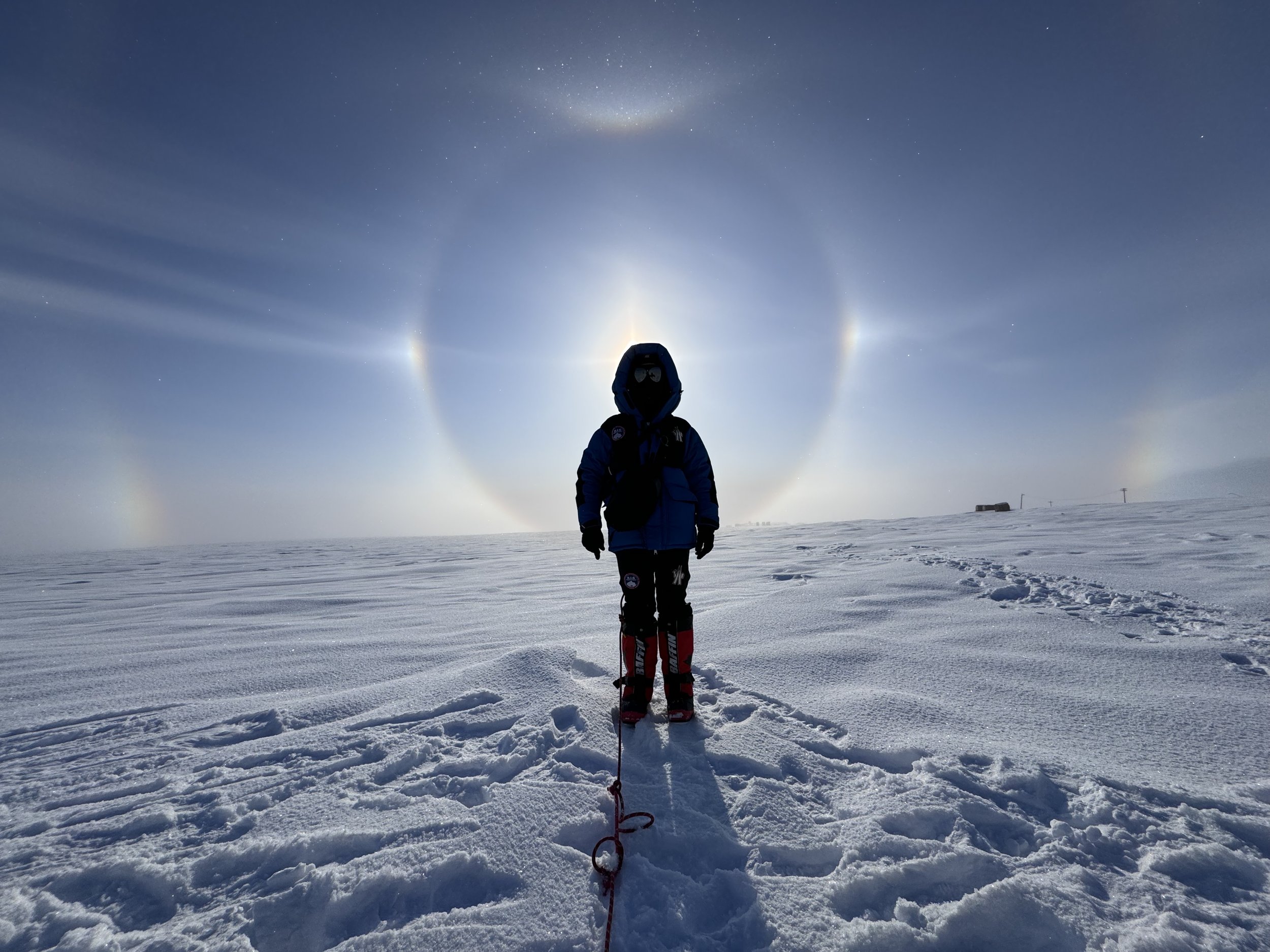On 7th April 2024 the B.I.G. Expedition team travelled to Nunavut and set out to traverse the Prince Gustav Adolf Sea by ski to collect snow, ice and water samples as well as an array of other data about this fast-changing environment.The Prince Gustav Adolf Sea is one of two areas within the Arctic Ocean where the oldest sea ice accumulates. Moved around by currents in the ocean and atmosphere, the oldest and thickest rafts of ice from across the Arctic eventually drift to this area in the north of the Canadian high Arctic islands.
In the event, bad weather and the consequent severe logistical delays forced a change of plan. The team were instead dropped by plane on Ellef Rignes Island on the eastern edge of the Prince Gustav Adolf Sea from where they battled yet more bad weather to access Arctic Ocean sea ice. They managed to complete the planned sample collection of snow and ice but within a more limited area than initially intended and almost entirely during just one 17-hour long session!
Ostensibly, the bad weather may seem to be simply bad luck - but on reflection, the team’s experience in Nunavut is one more demonstration of how climate has huge influence and impact on our ability to collect information about, and understand, the Arctic environment, particularly high latitude Arctic Ocean sea ice. Greater climate instability and extreme weather will only make efforts to plug these data gaps more challenging in the future and demonstrate the urgent need for efforts such as ours.
This is to be the last ski journey of what has become a four-year project to collect vital information about Arctic snow and ice. The B.I.G. team have now completed four ski expeditions (two in Iceland, one in Svalbard and one in Canada) and collected more than 200 samples as well as dozens of additional datapoints which will now be used in a range of research studies. The expeditions may be completed but the project will continue for quite some time as analysis of these samples is done, and results compiled.




